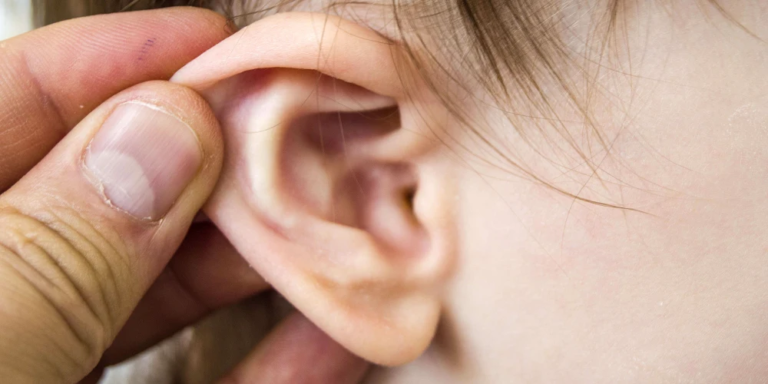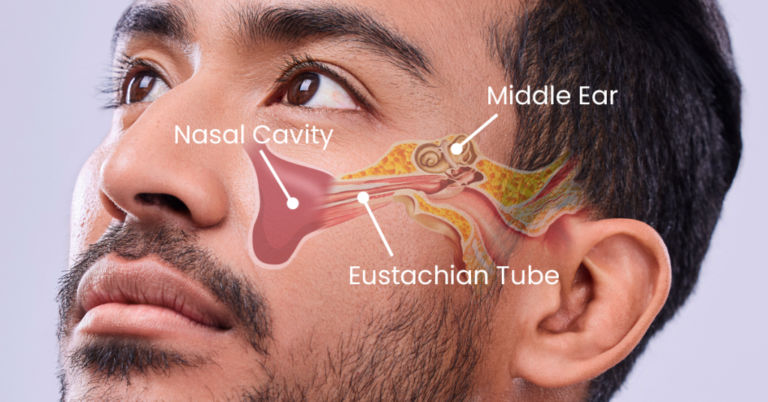Feeling Dizzy? It Might Be More Than Just Fatigue
Dizziness, vertigo, and balance issues can be confusing and even life-threatening. Although some people feel dizzy now and then, and it might be related to dehydration or exhaustion, frequent or continuous balance problems are likely to be a sign of an inner ear problem, which is a very specialized field that ENT (Ear, Nose, and Throat) doctors are trained to diagnose and treat.
Dr. Manasi Mehra, a trusted ENT specialist, explains how ear-related conditions can affect balance, and how ENT care can restore stability and improve quality of life.

The Link Between the Ear and Balance
Your inner ear has the vestibular system, which is important in your balance and spatial orientation. It cooperates with your brain, eyes and muscles to make you stable. A failure of any component of this system may lead to:
- Dizziness
- Vertigo (a spinning sensation)
- Lightheadedness
- Unsteadiness while walking
- Nausea or motion sickness
- Frequent falls or imbalance in elderly patients
When Should You See an ENT for Dizziness?
You should consider seeing an ENT expert if you’re dealing with any of the following:
- Dizziness that keeps coming back, even if it only lasts a few seconds
- Sudden spinning sensations that make it feel like the room is moving
- Trouble keeping your balance or walking steadily
- Hearing issues, such as ringing in the ears (tinnitus) or reduced hearing
- A feeling of pressure or fullness in your ears
- A history of frequent ear infections or any ear injury
ENT Diagnosis: What to Expect
An ENT evaluation for dizziness involves:
1. Detailed Medical History & Symptom Review
The ENT specialist will question you on when your symptoms started, whether they are triggered by something, how long they have lasted, whether they are accompanied by hearing problems and what other medical problems you have.
2. Physical and Neurological Exam
This usually involves checking how your eyes move, how you walk and stand, and how your body responds to certain head movements.
3. Hearing and Balance Tests
- Audiometry: Checks for hearing loss
- Videonystagmography (VNG): Evaluates eye movement and balance function
- Electronystagmography (ENG)
- Vestibular Evoked Myogenic Potentials (VEMP)
- Posturography: Measures stability in various positions
Common ENT-Related Causes of Dizziness
1. Benign Paroxysmal Positional Vertigo (BPPV)
BPPV, or benign paroxysmal positional vertigo, is a common inner ear disorder causing brief episodes of vertigo (a false sensation of movement or spinning) triggered by changes in head position.
Treatment: A simple head repositioning technique called the Epley maneuver is usually all it takes. No medications are needed.
2. Vestibular Neuritis or Labyrinthitis
The inner ear can become inflamed due to viral infection, resulting in suddenly intense vertigo with or without hearing loss.
Treatment: Medications to reduce dizziness and inflammation; balance therapy if needed.
3. Meniere’s Disease
It is a chronic inner ear disorder that can cause vertigo, hearing loss, tinnitus (ringing in the ears), and a feeling of fullness in the ear.
Treatment: Dietary changes (low sodium), medications, vestibular rehab, or surgery in severe cases.
4. Chronic Ear Infections or Fluid Buildup
Middle ear infections can interfere with balance in children and adults.
Treatment: Antibiotics, ear tubes, or surgical drainage.
5. Acoustic Neuroma (Rare Tumor)
It’s a harmless (non-cancerous) tumor that grows on the nerve connecting the inner ear to the brain. It can slowly affect your balance, cause hearing loss, and lead to ringing in the ear (tinnitus).
Treatment: Monitoring, surgery, or radiation depending on size and symptoms.
Treatment Options ENT Specialists Offer
- Canalith repositioning maneuvers (e.g., Epley or Semont for BPPV)
- Medications to reduce inflammation, nausea, or motion sickness
- Vestibular rehabilitation therapy (VRT) – a type of physical therapy for the balance system
- Hearing aids if dizziness is associated with hearing loss
- Surgical treatments in rare or advanced cases
Special Note: Dizziness in the Elderly
Dizziness in adults can lead to a wide variety of balance issues that make falls and subsequent injury more likely. ENT specialists are also important to differentiate between balance problems originating in the ear or other factors such as a change in blood pressure or as a side effect of medication.
Book a Consultation with Dr. Manasi Mehra
Whether you or someone you know is experiencing unexplainable dizziness or imbalance, it is not something to ignore. Dr. Manasi Mehra, is a Holistic Balance Disorder specialist who takes a personalized approach to diagnosing and treating the problem.








